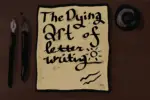When one says that they want to learn ancient Greek, perhaps they think they’re traveling down a dark, obscure academic path. What is the purpose of learning a dead language such as Attic Greek? Is it even a way to attain cultural capital at this point?
This summer, I decided that I wanted to major in classics at Columbia. It wasn’t an easy decision by any means; I’d entered school as a film and media studies major, until I realized film theory was boring as all get-out. Plus, it was impractical. Let it be known that film theory is not for the filmmaker, and that only an aspiring practitioner would study classics. I fit the latter bill indeed.
Of course, this is all facetious. Not only is it no longer spoken, but it’s not even used as a mark of pretention in academia, where Latin has, at least from my experience, certainly been held in such regard. “Did you know that [insert English word] comes from the Latin word for [insert Latin word]?” is a phrase you’ve probably heard from the most annoying person ever. Additionally, Latin has esteem because of its direct influence on European romance languages; Greek is just bewildering. It’s also really, really hard.
This semester, I decided to take an Intensive Elementary Greek course, which features a graded quiz in each class. The Zoom sessions are on Tuesday, Thursday and Friday, the lattermost couple serving as a lethal combination, especially if I don’t start Friday’s homework until Thursday night. Long story short, the class feels designed to snatch my wig thrice a week. I still am not sure what the accentuation rules for Greek are, for any declension or case — if you know please comment below, thank you so much.
Nevertheless, I find the struggle to be a great sign of growth. There are few activities that challenge one’s own understanding of the world while also making new connections with your everyday life as much as learning a new language, and Greek is definitely one of the most enlightening. When you learn ποταμός (pronounced “potamos”), which means river, you realize that the Potomac has a really stupid name. Hey, another reason to ridicule DC!
Obviously, there are tons of other examples, such as Χρόνος (“Kronos,” the famed titan father of mythology), which means time, suggesting that the concept is an omnipotent deity to whom we must supplicate. What idea is more important to the organization of our lives than time itself? It is this type of analog created across temporally and spatially distant contexts that makes learning Greek such an amazing experience.
Not only that, but the amount of actual texts that become accessible to you once you learn Greek is absolutely astounding. For those who have read “The Iliad” in translation and gawked at its verbosity (looking at you, Lattimore), imagine how it reads in its original language. I myself wonder the same thing. Homer is truly a magnet for me personally, having attracted me to the land of classics from afar. Hopefully one day he’ll be in my repertoire.
Upon learning Greek, one also comes to understand philosophy with far greater comprehension and dexterity. The language itself is a puzzle; one word, such as λόγος, can mean reason, logic, account, word, speech or tale, among other things. On one hand, this makes it incredibly difficult to translate. What if you pick the wrong word? How much of the original meaning is lost as a consequence?
However, if you’re ambitious and learn ancient Greek yourself, you won’t have to worry about the woes of translation. Instead, you can let the ambiguity wash over you like a wave of metaphor, opening doors into the abstractions surrounding us. Who is to say that a vote is not also a small pebble? (The word for both in Greek is ψήφος.)
Even beyond the beauty of Greek’s etymological quirks, the works of antiquity open so many doors of understanding on a philosophical level. For my contemporary civilization class, a political literature course required for all Columbia sophomores, I am reading Plato’s “Republic,” a work whose foresight about the ideals of society cannot be understated. However, the English translation we use may also misconstrue some of the language or, at the very least, it would be far clearer to read the original text.
That’s what makes learning Greek, or any language for that matter, so incredibly interdisciplinary. When you become proficient at reading and writing ancient Greek, the language becomes a proxy for all of this newly accessible knowledge that you can carry into just about any profession imaginable. The same cross-connections between philosophy, English, history or political science with other STEM fields exist for the eager classics student. It is all about perspective my friend.
Nevertheless, one might still be having their doubts about the viability of ancient Greek as a gateway to new intellectual possibilities. To those few, riddle me this: Where do all of those funny looking symbols in math come from? Oh, that’s right … Greek! A strong foundation in the language will help even math nerds do their work better.
Even with all of these reasons, I have to confess why I personally choose to master ancient Greek over other languages. There is a text called “Symposium,” also written by Plato, which I read last year for school. In it, sexual relationships between teenage boys and men are framed as a form of education for the younger participant, known conceptually as pederasty.
This was such a revelatory read. As someone who’s always been fascinated by gender studies — despite never having read Judith Butler (don’t come for me) — I couldn’t not be enthralled by the thought that homosexuality was, in a way, normal in the ancient world. It still boggles my brain today, and I cannot wait to read it in Greek.
A seminal text like that in itself should be enough to persuade you to learn Greek. So, what are you waiting for? Go learn ancient Greek. Please, I need someone to speak it with. Thanks.

















